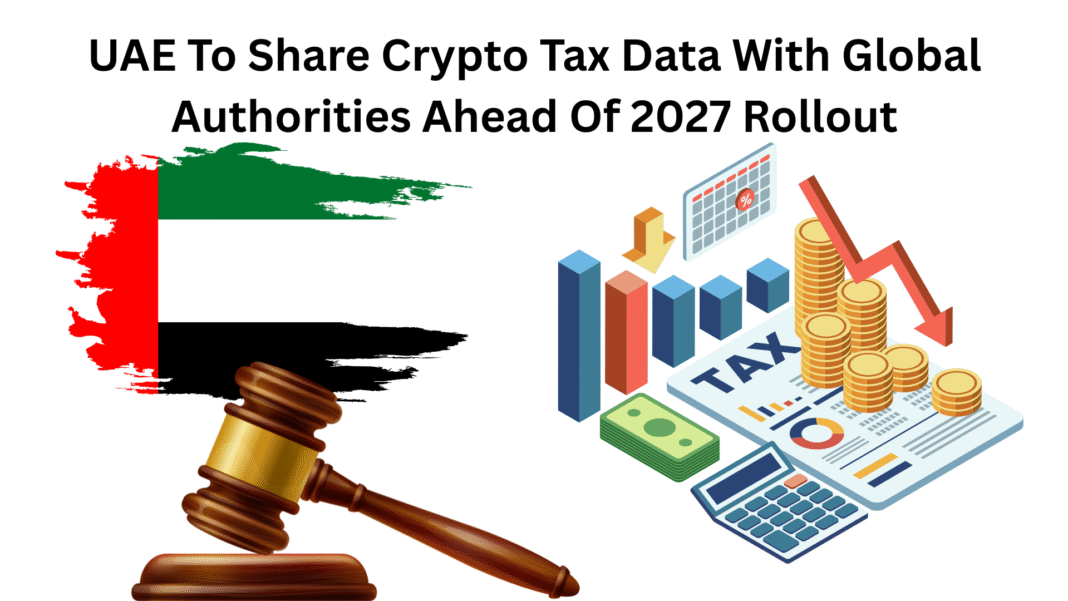The United Arab Emirates and local crypto firms have agreed to join an OECD-backed plan to share crypto tax data with other countries. The UAE signed the Multilateral Competent Authority Agreement under the Crypto-Asset Reporting Framework, first set out in 2023.
Firms must meet the new reporting rules by 2027, and the UAE will begin exchanging data with foreign tax authorities in 2028. The move aims to give tax officials clearer records of crypto activity and to bring the country in line with global transparency standards.
Automatic reporting pact
To do this, crypto businesses will be required to collect and report tax-related transaction details that can be shared automatically with other jurisdictions.
The agreement comes from the Crypto-Asset Reporting Framework set out by the OECD in 2023. It sets rules for how tax-related crypto data should be gathered and passed between tax offices.
The UAE signed the Multilateral Competent Authority Agreement to take part in that system. The government said the move gives firms in the country certainty. It also said it helps meet global tax transparency standards.
What must firms do?
Crypto firms will need to follow the new reporting rules by 2027. The UAE will then begin sharing the information with foreign tax authorities a year later. The rules will ask platforms to collect data on users and transactions that are relevant for tax purposes.
Firms that do not comply will face new reporting duties and likely extra checks from regulators.
Public consultation now open
To shape the details, the UAE Ministry opened an eight-week public consultation that runs until November 8. The ministry is asking exchanges, wallet providers, and other service firms to give feedback.
Officials say they want rules that work for the market and are clear for businesses. The consultation will let the government hear industry concerns and refine how the rules are applied.
Industry views
Some industry experts welcomed the step, Nitesh Mishra, co-founder and CTO at ChaiDEX, said the agreement brings legal clarity and makes the market safer for investors.
He said firms and investors will gain trust from regulators and other countries. Benjamin Young of Aston VIP said the move shows the UAE wants global alignment and transparency. He noted it could raise compliance work for firms but would help build a healthier market in the long run.
Broader policy context
The UAE has been crafting a friendly stance toward digital assets. In 2024, we reported, the country exempted crypto transactions from value-added tax. Dubai has also set clearer rules for Web3 firms.
The new tax reporting plan sits alongside these steps. It signals that the authorities want both a business-friendly market and stronger oversight.
The country is also moving to broaden crypto use in daily life, and policies now allow people to buy airline tickets with cryptocurrencies.
Several airlines in the UAE started accepting crypto as payment in 2025. Those measures aim to boost the real use of digital assets while keeping better records for tax and law enforcement.
What to watch next?
The consultation will likely shape how strict and how fast the rules take effect. Firms should prepare now.
They will need systems to collect data and to meet cross-border reporting standards.
Tax offices in other countries will expect regular exchanges of information once the UAE starts sharing data in 2028.
Also Read: Dubai and the UAE Take Strategic Step Toward Unified Crypto Regulation Via New Partnership


